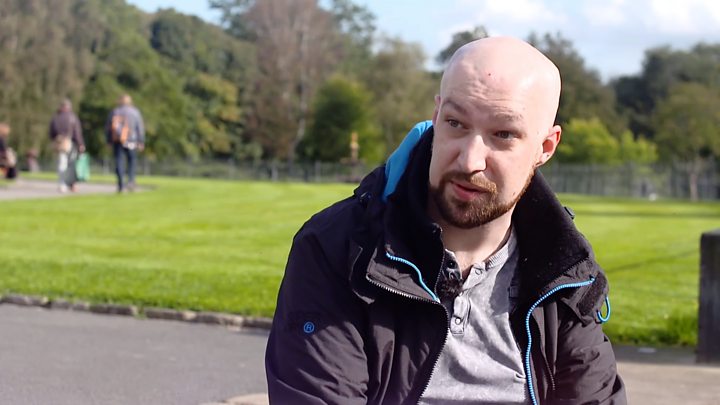British employers planned 58,000 redundancies in August, taking the total to 498,000 for the first five months of the Covid crisis.
Some 966 separate employers told the government of plans to cut 20 or more jobs, compared with 214 last August, a more than fourfold increase.
However, the figures were down from the levels seen in June and July, which both saw 150,000 job cuts planned.
The figures were released to the BBC after a freedom of information request.
Employers planning 20 or more redundancies
HR1 forms submitted
The economy bounced back in the summer after the unprecedented economic downturn earlier in the year, as workers were urged to return to the office, and customers encouraged to spend more by schemes such as the Eat Out To Help Out restaurant vouchers.
However a number of big businesses from many of the hardest-hit sectors, such as retail and restaurants, announced big redundancy plans, including Debenhams, DW Sports, Marks & Spencer, Pret a Manger, currency exchange company Travelex, and WH Smith.
The 58,000 positions put at risk in August was considerably lower than previous months, but it was still more than 150% up on the previous year.
"There was a sense of optimism in August, we were starting to see more spending and more activity, there were hopes for a quick recovery," said Rebecca McDonald, senior economist at the Joseph Rowntree Foundation think tank. "That seems a lot less likely now."
Planned redundancies
Proposed dismissals submitted
A government spokesperson said: "Supporting jobs is an absolute priority, which is why we have set out our plan for jobs to protect, create and support jobs across the UK.
"We are helping employees get back to work through a £1,000 retention bonus, creating new roles for young people with our £2bn Kickstart scheme and doubling the number of frontline work coaches."
How will the end of the furlough scheme affect redundancies?
The big summer rush may have been partly caused by firms preparing to cut staff before the end of the furlough scheme on 31 October.
That scheme, where the government pays part of workers' wages when their employers cannot, has helped to reduce the number of pandemic-related redundancies. A total of 9.6 million jobs were furloughed.
But given that most redundancy processes take months to complete, firms planning significant dismissals by the end of furlough would have had to notify government in the summer.
The Chancellor, Rishi Sunak, unveiled a new employment support scheme last month, where government will subsidise the pay of employees who are working fewer than their usual hours due to reduced demand.
It is less generous than the furlough scheme, and the next few months of redundancy data will give an early indication of how successful it has been in protecting employment.
"Many employers will have difficult decisions to make in the coming months. Given the design of the new scheme it seems likely that there will be a significant number of redundancies in the winter," said Ms McDonald.
"We are concerned that it will be the lowest-paid workers in the hardest-hit sectors who will be affected the most."

Media playback is unsupported on your device
Employers are obliged to notify government when they plan to make 20 or more staff redundant in any single "establishment" using an HR1 Advance Notice of Redundancy form. However, they often make fewer positions redundant than the number they initially notify.
These figures pick up an increase in redundancy plans long before the Office for National Statistics' redundancy figures, which appear with a lag of several months.
ONS numbers showed 156,000 redundancies from May to July, up from 107,000 in the previous three-month period.
However, any redundancy process involving fewer than 20 people doesn't show up in these figures so the eventual total is likely to be larger than the HR1 numbers suggest.
Companies in Northern Ireland file HR1 forms with the Northern Ireland Statistics and Research Agency and they are not included in these figures.
Have you been made redundant as a result of the coronavirus pandemic? Are you worried you will be? Share your experiences by emailing haveyoursay@bbc.co.uk.
Please include a contact number if you are willing to speak to a BBC journalist. You can also get in touch in the following ways:
- WhatsApp: +44 7756 165803
- Tweet: @BBC_HaveYourSay
- Please read our terms & conditions and privacy policy
If you are reading this page and can't see the form you will need to visit the mobile version of the BBC website to submit your question or comment or you can email us at HaveYourSay@bbc.co.uk. Please include your name, age and location with any submission.
https://news.google.com/__i/rss/rd/articles/CBMiLGh0dHBzOi8vd3d3LmJiYy5jby51ay9uZXdzL2J1c2luZXNzLTU0MzkyMTc30gEwaHR0cHM6Ly93d3cuYmJjLmNvLnVrL25ld3MvYW1wL2J1c2luZXNzLTU0MzkyMTc3?oc=5
2020-10-06 06:45:52Z
52781101225067
Tidak ada komentar:
Posting Komentar